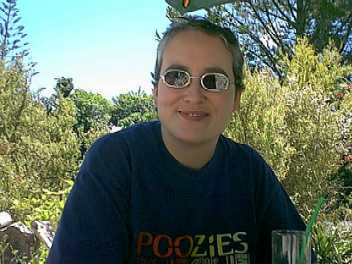Friday 1st December 2006 Dr Rowena Murray from Strathclyde University ran an i-ped seminar at the Coventry University on becoming a successful writer. Dr Murray is the author of several books on academic writing: How to Write a Thesis, Writing for Academic Journals and The Handbook of Academic Writing.
The emphasis of the day's seminar was writing for academics and Dr Murray told us that this may be challenging for some as it will mean changing our usual behaviours. She began by asking us to write down what successful writing meant for us and the challenges we faced in becoming successful writers. We also were instructed to think about where we wanted to go. A lively group discussion followed on how we could become one of the published, what this might mean for our own identity and the compromises we may have to make. Participants were concerned about having to conform to a norm they felt uncomfortable with i.e. writing in what was perceived to be in an inaccessible way. Dr Murray encouraged us to think in terms of learning how to join the conversation and of learning the norms and rules of the community, in this case journal we want to publish in. It was also pointed out that what may seem inaccessible at one stage in our learning may, further down the line, become comprehensible. Suggested definitions for a "successful writer" were:
- Publishes regularly
- Publishes in high-ranking journals
- Prolific
- Uses a range of writing strategies
- Writes for different audiences
- Enjoys writing
- Makes money from writing
Challenges people faced included:
- time,
- motivation,
- making it meaningful,
- feedback (getting and dealing with harsh reviews and knock backs),
- focus (most new writers try to put too much into articles),
- emotions and
- behaviours (learning productive ones and unlearning destructive ones).
The next task involved writing for five minutes with the following prompt: What writing for publication have you done and what would you like to do?
- What can I write about next?
- What do I want to write about next?
This approach is based on Peter Elbow's free writing technique (University of Massachusetts at Amherst) where the main aims are to write, without stopping or correcting, in sentences for short bursts of time regularly. Most people wrote between 150 and 250 words and it enabled us feel good about items we had already completed and think about our next writing goals, how we might achieve them and judge whether our goals were specific enough (in terms of the number of words and the journal we might target). We were reminded again that becoming successful was about defining the tasks you need to complete and so being able to write in small chunks because we will never have time to do everything we would like to do.
Dr Murray also pointed out that writing to prompts is a useful approach in dealing with such large tasks as a literature review, it can also help our students. The trick is to think "where do my ideas come from anyway?" For example is there a particular thinker / writer that has influenced you or a topic and who were these people talking about? Think in terms of prompts to get you writing and if the prompt doesn't work change it. One way to generate prompts is by looking at a target journal and what it expects. Look at abstracts in a target journal and see how they are written - collect key phrases that show approach and the types of studies they publish, pay particular attention to structure.
The key message was that successful writers are not born knowing how, they learn and are still learning. They too receive bad reviews (Dr Murray shared a particularly rude review she had received with us). You have to make time and find ways of using the small slots of time available. Sharing reviews to build up a knowledge base, starting or joining a writers group, working out what you need to know by analysing target journals and defining small achievable tasks towards our goal were all suggested as ways forward.
Further resources:
Peter Elbow Workshop materials available on the Web
Books available in the engCETL library:
Murray, R. (2005) Writing for Academic Journals, Open University Press & McGrawHill
Murray, R. (2006) The Handbook of Academic Writing: A Fresh Approach, McGrawHill

